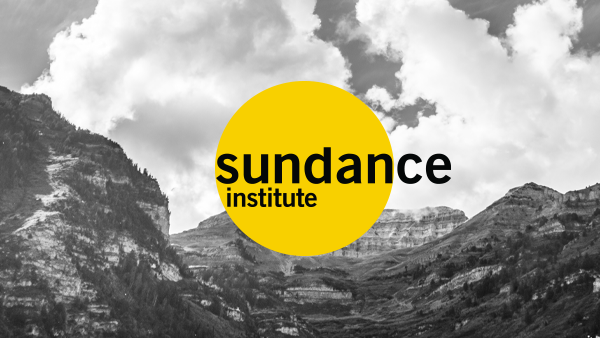Meredith Lavitt
Puerto Rico was ripe for Film Forward! Sundance Institute Director of Programming Trevor Groth and I landed on Tuesday, June 21, and went straight from the airport to the opening remarks for Film Forward Puerto Rico and introduction of Last Train Home.
We arrived at the beautiful Museo de Arte de Puerto Rico and literally had to fight our way through the crowds, who had gathered earlier for the opening reception, into the theatre. As we made our way upstream, I was thrilled to see so many people doing exactly what we were: fighting their way to get into a 400-seat theatre, but without any idea of just how many of us there were. More than 700 people showed up for the reception and film, and never in the history of the Puerto Rican Film Society have they had to turn away 300 people.
Guillermo Vazquez-Machargo, director of the film society, worried that maybe they did too much marketing and PR for the event, and was concerned that all those people would miss out on the experience. We were overwhelmed by the interest, and at every turn we were sincerely thanked for coming to “The Island” with Sundance and Film Forward. We were told what an amazing opportunity it was for Puerto Rico and how honored they were that we chose to come here.
It was a powerful outcry and demonstration of need for independent cinema and programs like Film Forward. With each screening and panel discussion it became more and more apparent that not only is Puerto Rico underserved, but they are starved for cultural film programs, education, film support, and that their film community is at a critical juncture in their filmmaking history.
Puerto Rico in the ’50s had a vibrant film community, but it died with the Diaspora, and now there is a renewed energy carried by a new generation of filmmakers trying to change the common perception that Puerto Rican film is bad. It is their moment to establish what Puerto Rican film is.
But the people need to support it, and support comes with education, and education comes with infrastructure and desire, which often under necessity means using guerrilla tactics to get started (from film cooperatives in the absence of graduate programs and independent art houses to stealing electricity at night!).
Puerto Ricans are extremely proud people who are caught living between the realities of two worlds–the ripple effects of the Puerto Rican Diaspora of the ’50s and the Diaspora happening today. Puerto Ricans claim that whatever happens in the States does not become a reality in Puerto Rico until two years later.
So as we in the States slowly begin to feel the positive effects of a strengthening economy, Puerto Rico is just now feeling the grip of the economic fall. Their reality of being both Puerto Rican and American citizens is an interesting duality that benefits them with a passport and governmental subsidy programs, but denies them a vote and ultimately creates an identity crisis.
Some see themselves as Puerto Rican, some call themselves American, but all respond “that it is a complex question and their relationship with the U.S. is antagonistic—while they benefit on one hand they suffer on the other.” It’s a response not unique to other commonwealths, and one that speaks to the inherent problem their film culture is crippled by and why initiatives like Film Forward are so critical for providing inspiration and reenergizing the burgeoning film community.
Puerto Rican film is suffering from the identity crisis and the myth that all things American are better. A professor of Puerto Rican film asked her students to write down all the Puerto Rican films they had seen and what about Puerto Rican cinema they liked. Some had seen three or four films, most had seen none, all answered “they suck!” The perception is that only Hollywood makes good film!
That said, we had the great fortune to meet with many filmmakers and hear their stories, see some of their shorts, and learn about their productions. What we discovered is Puerto Rico is a hotbed of complexity and the need to use film as their platform to express their stories is erupting across the Island, from San Juan to Ponce and from the east to the west.
In San Juan our audiences were primarily film centric with many filmmakers in the crowd. They riddled Debra Granik and Lixin Fan with questions on the making of their films, and the filmmakers generously shared their processes over and over again, feeding an unquenchable thirst from the audience. We could not have picked two more perfect films and filmmakers for Film Forward Puerto Rico.
The filmmakers inspired the audience with their guerilla style filmmaking techniques, their truly independent filmmaking styles, and their incredible resourcefulness with production. The audiences related to the films on a very intimate level as themes of family, poverty, migration, and gender balance struck an intensely personal cord, and discussions moved past the filmic arena and into the cultural realm.
Our panel in Ponce and the discussions with Debra and Lixin were among the most active and earnest discussions Film Forward has had the privilege of participating in. Audiences explored not only themes parallel to their lives, and revealed moments of revelation, but engaged the filmmakers with questions about how their experiences making these films changed them.
The two most moving comments from the audience came from unlikely candidates. A big, burly museum security worker quietly waited for the film and Q&A to end and then approached Debra Granik to thank her and inform her that she had told his story from Ponce.
Another young girl found the courage to stand up in front of the audience and respond to Lixin that her life was similar to the daughter in Last Train Home, that she was going through a hard time with her parents and could relate to the choices the daughter made. Comments like these filled the room and created a true cultural dialogue.
A huge thank you to the people who made Film Forward Puerto Rico a success – Guillermo Vazquez-Machargo and Eunice Soto-Ralat and their incredible team of volunteers; Carmen Oquendo-Villar, for her excellent moderation and wealth of knowledge; Luillo Ruiz and Belly Torres and their fabulous staff from Piemienta Films; Minette Lagares and Alicia Santos from Grupo AMS; Josette Pagan; and our excellent venues the Museo de Arte de Puerto Rico and the Museo de Arte de Ponce.
Muchas gracias!




